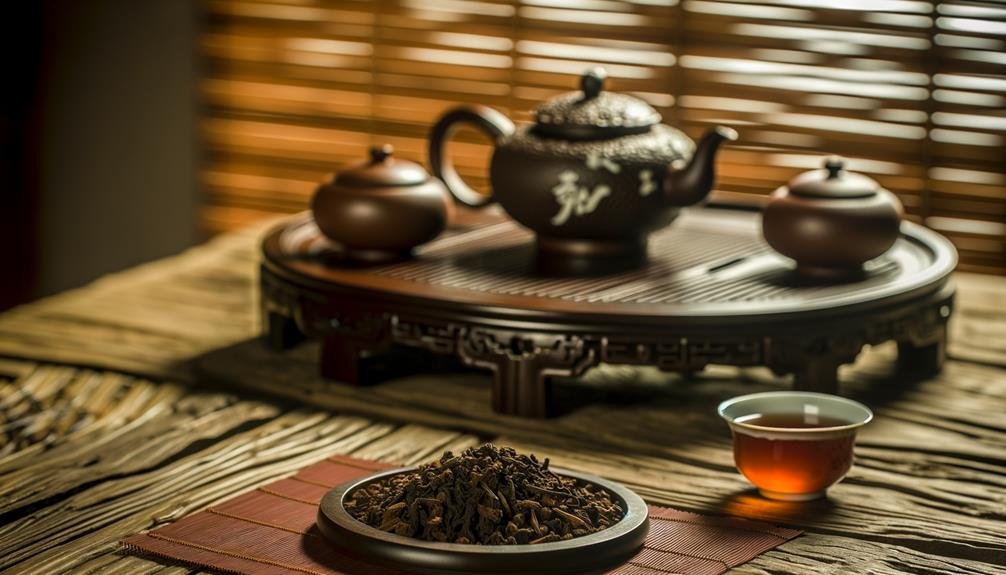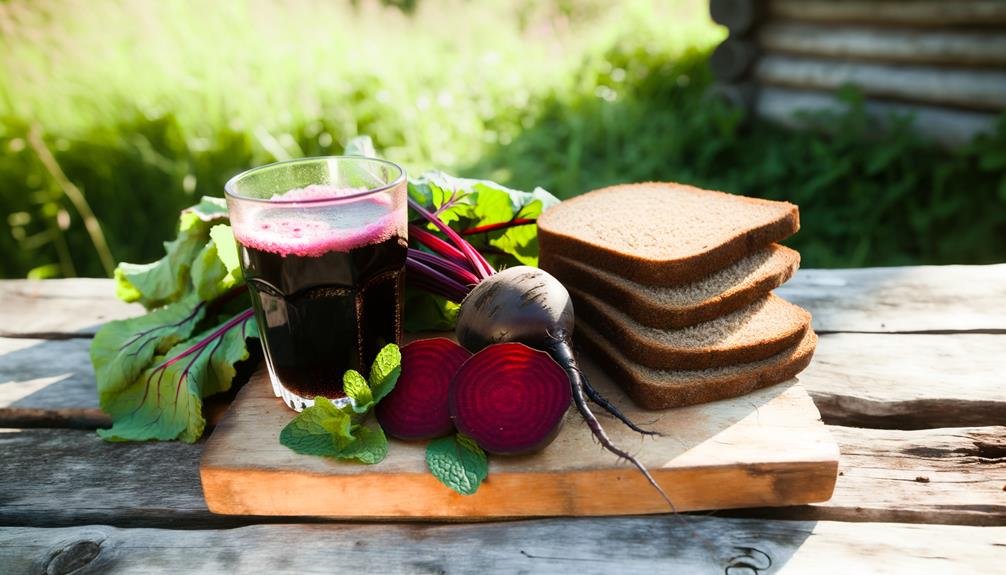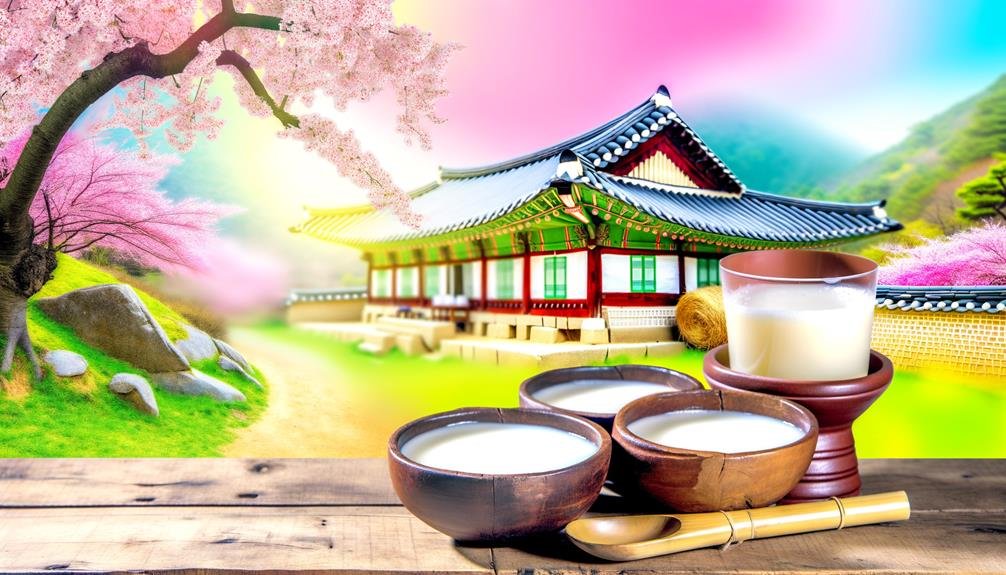Exploring exotic fermented drinks unveils a rich tapestry of culinary traditions and cultural heritage from around the world. Each beverage, from the bold flavors of Chinese dark tea to the tangy kick of Northern Caucasus Kefir, offers a glimpse into the unique stories of different regions.
For a taste of sweetness, Filipino Basi and its subtle undertones or the refreshing hints of Russian Kvass provide a delightful contrast. On the other hand, Korean Makgeolli stands out with its creamy texture and gut-friendly probiotics.
These drinks not only satisfy the taste buds but also serve as a gateway to understanding the diverse fermentation practices globally. Every sip unravels a new chapter of intriguing history and flavors waiting to be discovered.
Dark Tea

Dark tea, originally from China, undergoes a unique fermentation process that sets it apart from other teas. This special type of fermented tea, like Pu-erh, is renowned for its rich, well-rounded flavor that develops over years of aging. Dark tea's complex taste profiles cater to refined palates, making it a favorite among tea enthusiasts. Whether you prefer the fermented or unfermented style, dark tea offers versatility and a distinct taste experience.
The aging process of dark tea not only enhances its flavor but also provides potential health benefits. Improved digestion and cholesterol levels are among the advantages associated with this traditional beverage. By delving into the world of dark tea, both innovators and connoisseurs can enjoy a sophisticated yet classic drink with a deep-rooted history that continues to captivate.
Exploring the different varieties of dark tea allows individuals to appreciate its depth and complexity. From the earthy notes of aged Pu-erh to the smooth finish of Liu Bao tea, each type offers a unique flavor profile worth savoring. Dark tea's journey from fermentation to aging reveals a blend of tradition and innovation, making it a beverage that stands out in the world of tea.
Basi
Hailing from the Philippines, Basi stands out as a unique fermented drink derived from sugarcane. This traditional beverage traces its roots to ancient times before colonization, where it was carefully crafted by fermenting sugarcane juice along with samac leaves and barks. The fermentation process, lasting between 6 to 12 months, gradually increases Basi's alcohol content by about 1% each year, resulting in a final product with an alcohol level ranging from 10% to 16%. Its taste is bold yet slightly sweet, making it an intriguing choice for those curious about unconventional fermented drinks.
The history of Basi and its distinctive production techniques provide a captivating insight into Filipino culture. The combination of sugarcane juice with the unique flavors of samac leaves and barks creates a beverage with a rich heritage and complex depth of flavor. The patience required for the lengthy fermentation process adds to the allure of Basi, as each batch develops its distinctive characteristics over time. This traditional Filipino drink offers a glimpse into the country's culinary traditions and the art of fermentation, showcasing the creativity and resourcefulness of Filipino artisans.
Kvass

Kvass, a traditional fermented drink made from rye bread, is a beloved part of the culinary traditions of Russia and Lithuania. This refreshing beverage has a subtle sweetness and a malty flavor, with a gentle 1% alcohol content that appeals to both adults and children.
Unlike sugary sodas, kvass offers a unique taste experience thanks to the fermentation process. In Russia, it is even promoted as a patriotic alternative to cola.
Through its historical roots and cultural significance, kvass showcases the ingenuity of traditional fermentation methods. It not only preserves the past but also serves as inspiration for modern twists on fermented drinks that blend old and new flavors seamlessly.
Kefir
Kefir is a traditional beverage hailing from the Northern Caucasus region of Russia. It is crafted by fermenting milk with special 'kefir grains' over a 24-hour period. This process results in a probiotic-rich drink that has gained popularity among health-conscious individuals globally due to its beneficial bacteria and yeast cultures.
The fermentation imparts a tangy taste and a subtle fizziness, distinguishing it from other fermented dairy products. With an alcohol content of approximately 1%, kefir is a versatile option suitable for various dietary preferences. Historically, it was a beverage of choice among elite families, showcasing its esteemed reputation.
In modern times, kefir's appeal lies in its potential to enhance digestive health, making it a staple in contemporary wellness diets.
Makgeolli

Makgeolli, a traditional Korean rice wine, has made a comeback in recent times due to its unique appeal. This milky beverage, with a slightly sweet taste and an alcohol content of 6-8%, is gaining popularity among a diverse group of consumers, including young city dwellers and international enthusiasts.
Originally considered a drink for the common folk, Makgeolli has now found its way into the hearts of many. The fermentation process of Makgeolli involves a combination of rice and nuruk, a fermentation starter, resulting in a drink that is not only flavorful but also rich in probiotics and beneficial enzymes.
This resurgence in Makgeolli's popularity can be attributed to its health benefits and distinctive taste profile, which set it apart in the realm of fermented beverages. The tangy and slightly sweet characteristics of Makgeolli appeal to those looking for a refreshing and flavorful drink that also offers probiotic benefits.
As more people seek out unique and traditional beverages, Makgeolli stands out as a top choice, providing a taste of Korean culture and heritage in every sip.
With its growing recognition both locally and globally, Makgeolli has become a go-to option for those looking to explore new and exciting flavors in the world of beverages. Its blend of tradition, innovation, and health benefits make it a standout choice for anyone seeking a truly unique drinking experience.
Conclusion
Exploring a variety of unique fermented beverages like Chinese dark tea, Filipino Basi, Russian Kvass, Northern Caucasian Kefir, and Korean Makgeolli unveils a rich tapestry of flavors and traditions from around the world. Each drink not only offers a different taste experience but also provides a glimpse into the diverse and innovative fermentation techniques used across cultures.
By indulging in these beverages, one can embark on a sensory adventure that transcends cultural boundaries, gaining a deeper understanding and appreciation for the culinary customs of various societies. Whether it's the earthy notes of Chinese dark tea, the sweet tanginess of Filipino Basi, the refreshing taste of Russian Kvass, the creamy texture of Northern Caucasian Kefir, or the effervescent quality of Korean Makgeolli, each drink tells a unique story that highlights the artistry and heritage of fermentation practices globally.
So, next time you're looking to expand your beverage horizons, consider trying one of these exotic fermented drinks for a truly unforgettable taste journey.